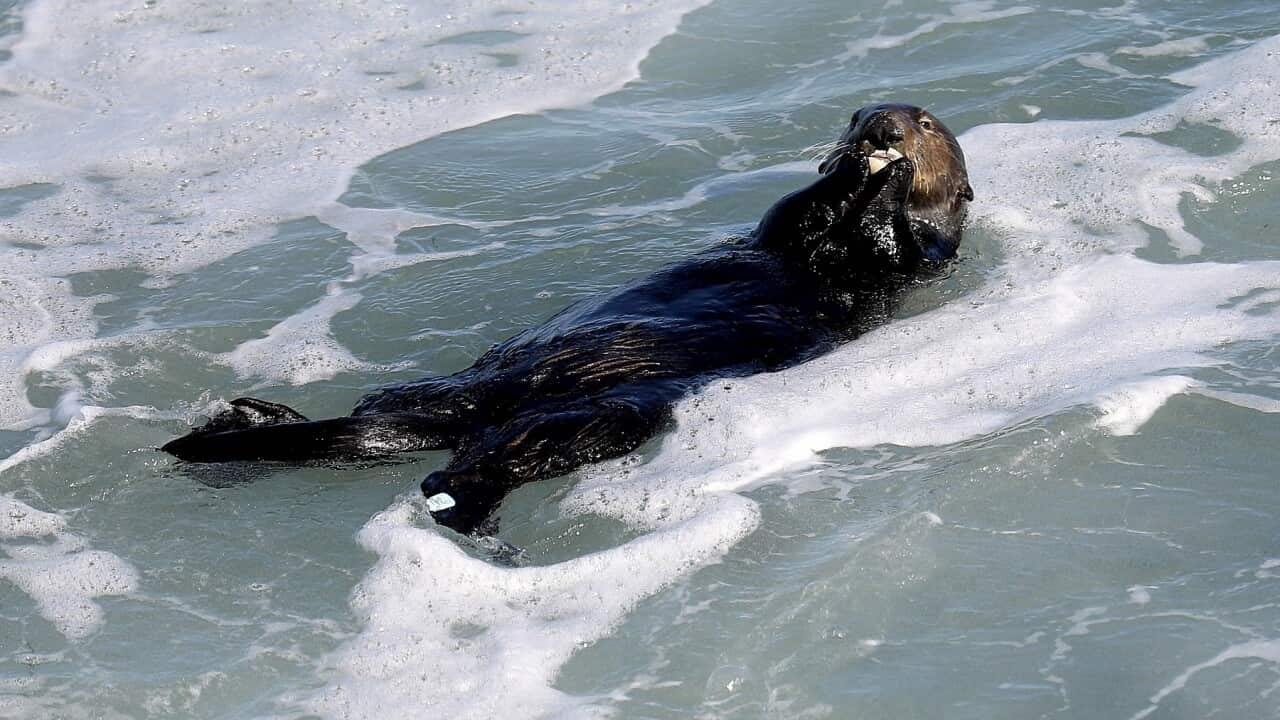TRANSCRIPT
2023 has been quite the year.
There has been plenty of serious news events happening - but also some unusual ones too.
Over in Uganda, a 70 year old woman has just been confirmed as the mother of twins.
Safina Namukwaya gave birth by caeserean section at a medical centre in Kampala, where she'd received IVF treatment to conceive.
And here is why she did it.
"What inspired me to give birth at my advanced age is that I had failed to conceive during my younger years and I had no children of my own until I grew old. All the children I kept raising over the years, I had none, and when they grew up they left me alone. That is why I decided to look for my own children."
Animals have also featured prominently on the unusual events list this year.
In South Korea, scientists there discovered that chinstrap penguins in Antarctica have an unusual sleeping strategy: they have a series of short microsleeps - dozing off for a few seconds at a time.
Won Young Lee is a researcher at the Korea Polar Research Institute.
"The team visited Antarctica for the first time in 2014, and since then, we have been studying penguins. When we observed penguins in the wild, it didn't seem like they were getting any sleep. Humans sleep seven to eight hours every night, but penguins seemed to have a series of short sleeps. Maybe it's because of predators nearby or other penguins made noises. We were curious whether penguins could get enough sleep in a day by getting a series of microsleeps."
In the UK, there was llama drama.
An escaped herd of llamas and alpacas brought traffic to a standstill on a highway in northwest England.
Owner Terry Barlow told the BBC that the animals were all safely returned after escaping through a fence.
The fence had been damaged in an earlier hit and run accident.
Not to be outdone, Canada reported a kangaroo escape.
The roo, born and raised in captivity in North America, escaped its handlers in Oshawa, a town on Lake Ontario about 60 kilometres east of Toronto.
It spent the weekend on the run before being rounded up by police and sent on its way - to a new home in a Quebec zoo.
But Durham Regional Police Staff Sergeant Chris Boileau says the kangaroo didn't go quietly.
"In accordance with best practices by the handlers, the officers actually just grabbed it by the tail and they were able to safely keep her contained in the area. Only one of the officers was actually struck in the face during the apprehension, but he'll be just fine and we won't be continuing the investigation."
The United States also played host to an assertive animal, with a surfer in California reporting that an otter stole his surfboard at a point break known as Steamer Lane.
Fish and Wildlife Service officials said they were aware of the 5-year-old female southern sea otter exhibiting what they called "concerning and unusual behaviors", including repeatedly approaching surfers and kayakers in the area.
No word on whether the otter was ever caught - or is still hanging ten off the coast of Santa Cruz.
Meanwhile, in New Zealand, voters selected "a weird puking bird" with a bizarre mating dance for New Zealand's annual avian beauty contest.
The unfancied Australasian crested grebe soared to an unexpected victory in the Bird of the Century ballot, backed by voters from far flung cities across the world.
Their votes were part of a global campaign launched by British comedian John Oliver, who used his television show to meddle in the contest and support the species more commonly known by its Maori name "puteketeke".
"We put up ads in New Zealand, Paris, Mumbai, Tokyo, and London. We flew a banner over Ipanema Beach in Brazil, and naturally put up a billboard in Manitowoc, Wisconsin. And it seemed like our promotion worked."
Back in the land of humankind, in Japan, one day's regular commute was anything but for passengers on one particular bullet train.
A carriage was turned into a wrestling ring, with 75 passengers paying to watch two professional wrestlers throwing each other around.
And finally in the United States, after decades of debunking conspiracy theories, space agency NASA has rebranded unidentified flying objects - or UFOs - as unexplained anomalous phenomena - UAPs.
NASA is putting together a taskforce of scientists and experts to study the UAPs, which chairman David Spergel says makes a lot of sense - even if not every sighting does.
"To understand UAP better, targeted data collection, thorough data curation and robust analysis are needed. Such an approach will help to discern unexplained UAP sightings. But even then, there's no guarantee that all sightings will be explained.”













